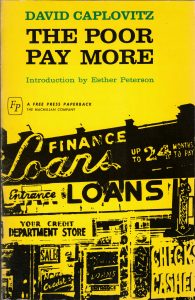
As I told you over a month ago, I recently reading book #500 in my reading records since I began tracking back in June of 2015. When I announced this milestone, I promised both an analysis for the last hundred books read and a listing of the books themselves. This post is in fulfillment of the latter half of that promise. (As usual, I do not include comics and graphic novels as ‘books’ in my count, though they are listed below.)
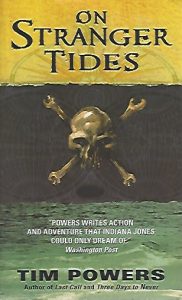
I have already mentioned the circumstances (see above link) under which I acquired The Poor Pay More, a study of buying habits of the lower class in New York City’s ‘projects’. This book capped off the last hundred books I have read (not counting those read since September 12, when I finished the David Caplovitz sociology book), a century of books which began with the wonderful Philip K. Dick non-genre fiction book, Confessions of a Crap Artist, which I read back in January. (Which month seems so very, very long ago.) I wrote about it on this blog at the time Also of note in the first ten books of the last hundred read was the Tim Powers’s fiction (I find it hard to classify), On Stranger Tides, which I finally got around to reading. It turns out to be much, much better than I was expecting after viewing the transmogrified story in the last Pirates of the Caribbean movie.
| # |
Read |
Author |
Title |
Genre |
| 401 |
1/19/20 |
Philip K. Dick |
Confessions of a Crap Artist |
Fiction |
| 402 |
1/21/20 |
Poul Anderson |
Agent of the Terran Empire |
SF & Fantasy |
| 403 |
1/22/20 |
James O. Causey |
Frenzy |
Mystery |
| 404 |
1/23/20 |
Tim Powers |
On Stranger Tides |
SF & Fantasy |
| 405 |
1/28/20 |
Marjorie Kelly |
The Divine Right of Capital |
Business |
| 406 |
1/28/20 |
Stephen Vincent Benét |
The Devil And Daniel Webster |
Fiction |
| 407 |
1/30/20 |
Norman Dodge |
The Month at Goodspeed’s April 1930, Vol. I No. 7 |
Books |
| 408 |
1/30/20 |
Daniel Manus Pinkwater |
The Magic Moscow |
Children’s |
| 409 |
1/31/20 |
Vance Randolph & Nancy Clemens |
The Camp-Meeting Murders |
Mystery |
| 410 |
2/2/20 |
Judith Moffett |
The Ragged World |
SF & Fantasy |
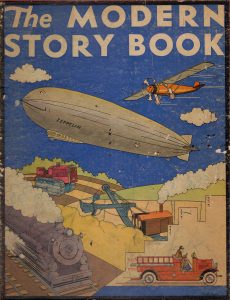
Besides the two Wilkie Collins books, which I have already written about, the highlight of the next ten books in this listing is The Modern Story Book, a children’s book for the modern child, featuring as protagonists the new machines of transportation that this crazy 20th Century has (had) engendered. Besides the obvious stories about cars, planes, and trains, we see the anthropomorphic musings and wanderings of a brave dirigible, a bored elevator car, and an old piece of farm machinery. Illustrated with the same clear lines and bright colors that made the My Book House series such a delight, the texts are fables for the wondrous machine age, sparkling futurism without (much) fascism. (Though the elevator does learn the perils of stepping too far outside his appointed role.)
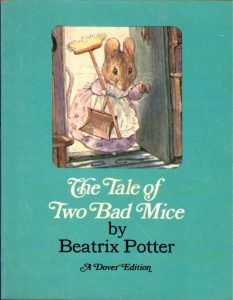
Another wonderful children’s book was The Tale of Two Bad Mice, fifth in Beatrix Potter’s delightful illustrated stories. There seems to be an especial moral in this humorous adventure of two mice who find a perfectly sized house which is filled with fake food and other unrealities; unfortunately, I am now too old to comprehend morals. I was heartened in this past century of books to have access once more to the shelves upon which rest my children’s books.

This second decade of books also saw me get back to my comic books, including my penultimate guilty pleasure, the Badger. (My guiltiest reading pleasure, of course, being the Dray Prescot books of Alan Burt Akers.) 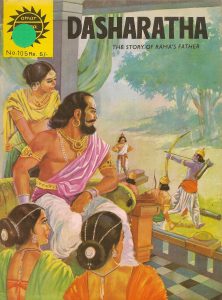
I’ve also been perusing some of my Amar Chitra Katha collection, but I should note that the actual content of Dasharatha includes nothing like the William Tell story shown on the cover of the comic.
| # |
Read |
Author |
Title |
Genre |
| 411 |
2/2/20 |
|
Pentagram Cryptography |
Spies |
| 412 |
2/3/20 |
Wilkie Collins |
Miss or Mrs? |
Fiction |
| 413 |
2/5/20 |
Wallace Wadsworth; Ruth Eger, illustrator |
The Modern Story Book |
Mystery |
| 414 |
2/5/20 |
Thomas Campbell II |
Bad Girls Of Pulp Fiction |
Books |
| 415 |
2/9/20 |
Nicolas Freeling |
Gun Before Butter |
Mystery |
| 416 |
2/10/20 |
Georges Simenon |
Enigmes |
Foreign Language |
| 417 |
2/12/20 |
R. T. Campbell |
Bodies in a Bookshop |
Mystery |
| 418 |
2/13/20 |
Wilkie Collins |
The Guilty River |
Fiction |
| 419 |
2/13/20 |
Beatrix Potter |
The Tale of Two Bad Mice |
Children’s |
|
2/15/20 |
Lopamudra |
Chandralalat: The Prince With A Moon On His Forehead |
Comics |
| 420 |
2/16/20 |
Margaret Frazer |
The Outlaw’s Tale |
Mystery |
|
2/16/20 |
Anant Pai, ed. |
Dasharatha: The Story Of Rama’s Father |
Comics |
|
2/16/20 |
Mike Baron |
Badger #1 [Capital] |
Comics |

I’ve already written about almost half of the next ten books on my reading list, including the small but punchy Penguin paperback pictured here, Hazell and the Menacing Jester. That one impressed me so much I even culled together a list of the rhyming and other cockney slang found therein, to which I hope to add when I read the first in this all-too-short trilogy of books. The P. B. Yuill mystery was only one of the many excellent books that made up this third decade of my fifth hundred.
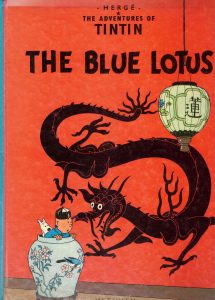
One terrific book I haven’t reported upon is The Blue Lotus, the 5th volume in the Tintin bande desinée series by Hergé. Not only does this sequel to Cigars of the Pharaoh demonstrate the clear lines and detail-packed frames one associates with the Belgian cartoonist, but the insights into Chinese society on the cusp of communism are fascinating. The Japanese invaders come off poorly in this book, but no more poorly than they deserve.
| # |
Read |
Author |
Title |
Genre |
| 421 |
2/17/20 |
Erle Stanley Gardner (as A. A. Fair) |
Turn On The Heat |
Mystery |
| 422 |
2/19/20 |
A. Bertram Chandler |
The Inheritors / The Gateway To Never |
SF & Fantasy |
| 423 |
2/21/20 |
Rex Stout |
Too Many Clients |
Mystery |
| 424 |
2/5/20 |
P. B. Yuill |
Hazell and the Menacing Jester |
Mystery |
|
3/2/20 |
Hergé |
The Blue Lotus |
Comics |
|
3/2/20 |
Goscinny & Uderzo |
Asterix in Belgium |
Comics |
| 425 |
3/7/20 |
Ernest Kurtz & Katherine Ketcham |
The Spirituality of Imperfection: Storytelling and the Search for Meaning |
Feeble |
| 426 |
3/9/20 |
Friar Tuck’s Christmas Series |
Puppy Dog’s ABC |
Children’s |
| 427 |
3/9/20 |
Bill Fawcett, ed. |
Cats in Space and Other Places |
SF & Fantasy |
| 428 |
3/12/20 |
Arthur C. Clarke |
2001: A Space Odyssey |
SF & Fantasy |
| 429 |
3/13/20 |
Beatrix Potter |
The Tale of Mrs. Tiggy-Winkle |
Children’s |
| 430 |
3/16/20 |
Anita Brenner |
The Wind that Swept Mexico: The History of the Mexican Revolution of 1910-1942 |
History |

More good books in the next set of ten, though I never did get back to report on the other stories in Candide, Zadig and selected stories. (If you read “Zadig” and “Ingenuous” you’ll have read the best of the lot, though admittedly that best is very, very good.) Another thing I have yet to get back to is reading the French original of The Mystery of the Yellow Room. Many reviewers have been dissatisfied by this tiny mystery by Gaston Leroux, but I found it to be a surprising and satisfying solution to a locked room puzzle, which is really all one can ask from that particular subgenre. The English translation, however, seemed to me to flawed at places, so I want to read the original to determine if either the dryness and flawed language is an artifact of translation or a feature of the original. The third possibility, of course, is that my grasp of the French language will be so abysmal as to leave me forever in doubt.

During this slice I also continued my comic book reading—which, as I’ve pointed out before and will continue to mention, do not count towards the official “Books Read” tally—with the two-part Marvel adaptation of the Buckaroo Banzai movie, which was … meh, I guess. The artists managed to make Peter Weller’s character look like Weller, but try to recognize Jeff Goldblum on the cover of issue #1 shown here. He’s the tall one. The resemblance isn’t present on the inside, either. (Not that I don’t keep count of the comic books and graphic novels, though. For example, the next-to-last entry in this slice of ten (official) Books Read is the Lego … ahem, brick-based Catechism of the Seven Sacraments, which was #499 of all books and comics read since starting this meaningless tracking project.)
| # |
Read |
Author |
Title |
Genre |
| 431 |
3/18/20 |
Arthur C. Clarke |
Prelude to Space |
SF & Fantasy |
| 432 |
3/23/20 |
R. W. Morgan |
Saint Paul in Britain |
Wacko |
| 433 |
3/26/20 |
Rudy Rucker |
The Hollow Earth |
SF & Fantasy |
| 434 |
3/26/20 |
R. Austin Freeman |
Dr. Thorndyke Intervenes |
Mystery |
| 435 |
3/28/20 |
Andre Norton |
The Crossroads Of Time |
SF & Fantasy |
| 436 |
4/1/20 |
Gaston Leroux |
The Mystery of the Yellow Room |
Mystery |
| 437 |
4/4/20 |
William J. Locke |
Simon The Jester |
Fiction |
|
4/9/20 |
Bill Mantio, pencils by Mark Texeira, inks by Armando Gil |
Buckaroo Banzai #1 |
Comics |
|
4/11/20 |
Bill Mantio, pencils by Mark Texeira, inks by Armando Gil |
Buckaroo Banzai #2 |
Comics |
| 438 |
4/14/20 |
Voltaire |
Candide, Zadig and selected stories |
Fiction |
| 439 |
4/14/20 |
Texe Marrs |
Project L. U. C. I. D.: The Beast 666 Universal Human Control System |
Wacko |
|
4/19/20 |
Mary O’Neill & Kevin O’Neill |
Catechism of the Seven Sacraments |
Comics |
| 440 |
4/21/20 |
Ellery Queen |
The Scarlet Letters / The Glass Village |
Mystery |
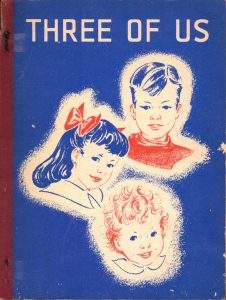
The next tranche of books leading up to the half-century mark held many solid and highly readable volumes, including Book #441 in my reading, Three Of Us. This very basic primer from the California state textbooks program of the 1950s (and perhaps the ’40s; I only know that my copy was printed in 1954) deserves to stand alongside Dick and Jane for its blithely happy-go-lucky white kids learning and having fun. Sorry, having fun! This one came to me as a gift from a longtime educator who was cleaning out the closets. (It’s true: I will read almost anything.) You’ll note that it has too many authors.
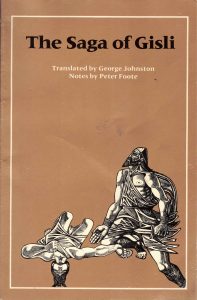
I began The Saga of Gisli the Outlaw because I was watching the second season of Trapped, though I finished the Icelandic TV series long before I completed the Icelandic saga. The sagas of Iceland are great, and this one is no exception, though I found keeping track of the Who’s Who even more difficult than usual (my usual being Njal’s Saga). The penurious bonds of outlawry reminded me of the exile of the Pandava brothers, though the tragic workings of ineluctable fate pulled my heartstrings more for Gisli—doubtless only because of my Western bias.
| # |
Read |
Author |
Title |
Genre |
| 441 |
4/21/20 |
Guy L. Bond, Grace A. Dorsey, Marie C. Cuddy, & Kathleen Wise |
Three Of Us |
Children’s |
| 442 |
4/25/20 |
Steven Brust |
Cowboy Feng’s Space Bar and Grille |
SF & Fantasy |
|
4/28/20 |
Hergé |
The Broken Ear |
Comics |
| 443 |
4/29/20 |
Terry Deary |
The Groovy Greeks |
History |
| 444 |
5/1/20 |
Norman Dodge |
The Month at Goodspeed’s May 1930, Vol. I No. 8 |
Books |
| 445 |
5/2/20 |
Norman Dodge |
The Month at Goodspeed’s Book Shop June 1930, Vol. I No. 9 |
Books |
| 446 |
5/4/20 |
George Johnston, trans.; Peter Foote, notes & essay |
The Saga of Gisli the Outlaw |
History |
| 447 |
5/5/20 |
Isaac Asimov |
Gold: The Final Science Fiction Collection |
SF & Fantasy |
| 448 |
5/5/20 |
Lawrence Block |
Burglars Can’t Be Choosers |
Mystery |
| 449 |
5/7/20 |
Lloyd Alexander |
Taran Wanderer |
SF & Fantasy |
| 450 |
5/10/20 |
Conrad Richter |
The Sea of Grass |
Western |

I wrote not a word about the good books in the next ten on my list—only taking a moment to write about what may be the worst book I have ever read—partly because I started to read some of the dregs of my collection (looking at you, supposed self-help books), and partly because of my life circumstances, which changed in May of this year in a fairly minor way, but which necessitated a drastic modification of my sleeping (and thus my typing) schedule. This decade of books started off with a real winner, however, The Day The World Ended, an engrossing account of the surprisingly forgotten volcanic eruption of Mount Pelée on Martinique in 1902. The two British authors, Gordon Thomas and Max Morgan Witts, went on to write similar tomes about disastrous events ranging from the San Francisco earthquake to the Crash of 1929. They are in top form in this tale of bureaucratic inertia and buck-passing that made a natural disaster into a much worse human tragedy.
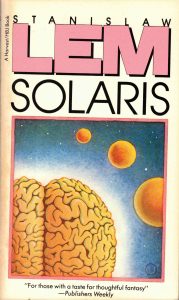
I hope some day to read the ebook of the new translation of Solaris by Bill Johnston, to compare it with the English translation that has been available since 1970. The latter version, which Lem disliked, was a translation of a translation, being rendered into English not from the Polish original, but from a French translation of the supposedly seminal 1961 Science Fiction novel. Thus my wish to read the new version since learning of Johnston’s direct translation. But, as they say, if wishes were horses we’d be up to our shoulders in horseshit. Strangely enough, the new version is available only as an ebook or as an audiobook due to bizarre copyright restrictions hovering around the original English version. But I acquired a copy with some Amazon credits, and read the earlier version—which I’d read before—in preparation for the comparison. Still haven’t read the ‘electronic’ version yet; I dislike electronic ‘books’.
| # |
Read |
Author |
Title |
Genre |
| 451 |
5/17/20 |
Gordon Thomas & Max Morgan Witts |
The Day The World Ended |
History |
| 452 |
5/18/20 |
Lawrence Block |
Random Walk: A Novel For The New Age |
Fiction |
| 453 |
5/19/20 |
Norman Lewis |
How To Become A Better Reader |
Books |
| 454 |
5/23/20 |
M. Scott Peck |
Abounding Grace: An Anthology Of Wisdom |
Spirituality |
| 455 |
5/23/20 |
Stanislaw Lem |
Solaris |
SF & Fantasy |
| 456 |
5/24/20 |
Donna Leon |
Death at La Fenice |
Mystery |
| 457 |
5/25/20 |
Scott Jeffrey |
Journey to the Impossible: Designing an Extraordinary Life |
Self-Help |
| 458 |
5/25/20 |
Ian Livingstone, ed. |
White Dwarf No 34 |
D&D |
| 459 |
5/26/20 |
|
More Soviet Science Fiction |
SF & Fantasy |
| 460 |
5/30/20 |
Phoebe Atwood Taylor |
Deathblow Hill |
Mystery |
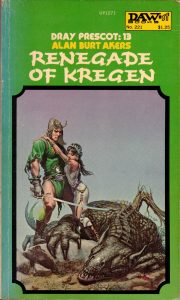
Happily the next ten books contained more wonderful reading than the previous ten, though once again I only managed to write about one of those books (and not the best, and I actually wrote nothing, only quoted the book itself). Among the great reads were a couple from my guiltiest pleasure, the Dray Prescot series by the pseudonymous Alan Burt Akers. In this ‘cycle’—the Krozair Cycle—Prescot is flung into the great battle between the Red and the Green along the shores and on the waters of the Eye Of The World, that great inland sea which also was the scene of one of Dray’s first adventures on the distant planet of Kregen. Anyway …. Seriously, you should check it out. Kenneth Bulmer (the real author behind the nom de plume) is in love with language and adventure, and it shows.
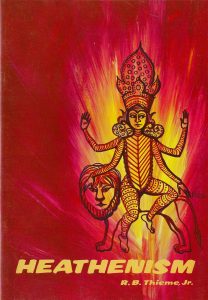
I also worked my way through some religious tracts to see if they might be gotten rid of, but the slightly off works of Mr. Thieme turn out to be of interest. His strange proselytizing for the peculiar views he espouses might be off-putting to most, but he manages to back up most of his weird claims fairly with the usual bible quotes, though he obviously knows little about other religions than Christianity save that they are bad. All in all, a fun read.
| # |
Read |
Author |
Title |
Genre |
| 461 |
6/2/20 |
Beatrix Potter |
The Pie and the Patty-Pan |
Children’s |
| 462 |
6/3/20 |
Alan Burt Akers |
The Tides of Kregen |
SF & Fantasy |
| 463 |
6/5/20 |
Fiona Buckley |
The Doublet Affair |
History |
| 464 |
6/9/20 |
Alan Burt Akers |
Renegade of Kregen |
SF & Fantasy |
| 465 |
6/9/20 |
Donna Leon |
Death in a Strange Country |
Mystery |
| 466 |
6/10/20 |
R. B. Thieme, Jr. |
Heathenism |
Religion |
| 467 |
6/13/20 |
Peter Lovesey |
The Circle |
Mystery |
| 468 |
6/17/20 |
Fiona Buckley |
Queen’s Ransom |
Mystery |
|
6/20/20 |
|
The Shazam! Family Archives Volume 1 |
Comics |
| 469 |
6/20/20 |
William P. Strube, Jr. |
The Star Over The Kremlin |
Wacko |
| 470 |
6/22/20 |
Alex Berenson |
The Faithful Spy |
Mystery |
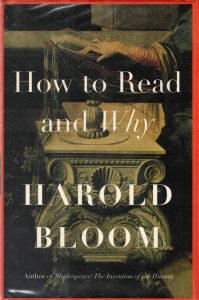
Whatever may be your feelings and thoughts about Harold Bloom, he is very well acquainted with The Canon of Western Literature, and in How To Read and Why he makes a strenuous case for the importance of not only reading, but of reading the good stuff. Naturally he has strong opinions about just what the good stuff is, but most of us who did not major in Literature are bound to find some new suggestions or just some old authors we always meant to return to. I personally have at least a dozen books I obtained after turning through Bloom’s paean to the best of the written word. He also recommends some translations for works not originally in English.
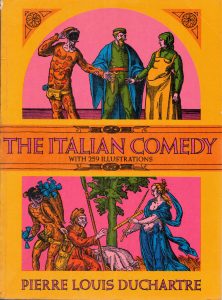
I was disappointed in The Italian Comedy, a Dover reprint of a translation of Pierre Louis Ducharte’s overview of the Commedia dell’arte. Doubtless the flaws I found in the book are flaws within my own reading skills and knowledge, but I had hoped for better insight into the jaunty escapades of Harlequin, Columbine, and Pierrot. Unfortunately (for me at least), the author assumes so much prior knowledge, and presents his facts in an almost tabular form, that I had difficulty pulling together the various threads. More literate and cognizant folk will likely find this volume more informative.
| # |
Read |
Author |
Title |
Genre |
| 471 |
6/24/20 |
Harold Bloom |
How To Read and Why |
Literary Criticism |
| 472 |
6/24/20 |
Daniel Pinkwater |
The Magic Goose |
Children’s |
| 473 |
6/27/20 |
Colin Dexter |
Last Bus to Woodstock |
Mystery |
| 474 |
6/29/20 |
Colin Dexter |
Last Seen Wearing |
Mystery |
| 475 |
6/30/20 |
John T. Watson, M.D., ed. |
Book Of Elegant Poetical Extracts |
Poetry |
| 476 |
6/30/20 |
Pierre Louis Duchartre |
The Italian Comedy |
Drama |
| 477 |
7/2/20 |
Horacio Quiroga |
The Decapitated Chicken and Other Stories |
Fiction |
| 478 |
7/5/20 |
Eden Phillpotts |
The Red Redmaynes |
Mystery |
| 479 |
7/12/20 |
James Swain |
Grift Sense |
Mystery |
| 480 |
7/14/20 |
Agatha Christie |
Five Complete Hercule Poirot Novels: Thirteen at Dinner / Murder on the Orient Express / The ABC Murders / Cards on the Table / Death on the Nile |
Mystery |

With the final twenty books of the last hundred, we descend into the slough of despond, or at least the Slough of Meh. I’ve been reading—among other things—books I suspected I might just as well be shed of. One of these, which I’ve meant to write about ever since finishing its uninspiring pages, is the preening Peter L. Bernstein’s book on probabilities and money, Against The Gods: The Remarkable Story Of Risk. In truth, there is little remarkable about the book, which ends up being a sort of rambling affair about odds and how to set them, framed by the capitalist idea of economics being the only way to look upon the world and its vagaries. If only, Bernstein laments at one point early in the book, if only the Greeks had taken the next steps in mathematics and had discovered how to analyze risk! Bernstein is also a sloppy explainer of mathematical principles, which makes it all the more surprising that Wiley is the publisher of this trivial tome.
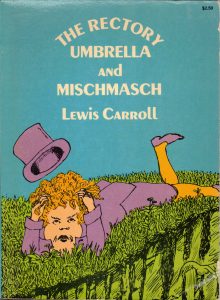
Not entirely satisfying in a completely different way is Lewis Carroll’s The Rectory Umbrella and Mischmasch. This book collects most of the handmade journals of Charles Lutwidge Dodgson’s youth (allowing that term to extend into his early years at college), and shows his remarkable creative talent for nonsense. The scintillating flashes of brilliant ridiculousness, however, only show that some special spark was given to the mediocre math professor when he arrived at the wonderful tales of Alice. Worth reading only for Carroll aficionados (read: nutjobs), of which I aspire to become one.
| # |
Read |
Author |
Title |
Genre |
| 481 |
7/14/20 |
Michael Moore |
Stupid White Men …And Other Sorry Excuses for the State of the Nation! |
Current Events |
| 482 |
7/18/20 |
Max Brand |
The Overland Kid |
Western |
| 483 |
7/23/20 |
Margaret Frazer |
The Bishop’s Tale |
Mystery |
| 484 |
7/24/20 |
Lewis Carroll [Charles Lutwidge Dodgson] |
The Rectory Umbrella and Mischmasch |
Fiction |
| 485 |
7/31/20 |
Patrizia Rinaldi |
Three, Imperfect Number |
Mystery |
| 486 |
7/31/20 |
Peter L. Bernstein |
Against The Gods: The Remarkable Story Of Risk |
Business |
| 487 |
8/4/20 |
Colin Dexter |
The Silent World Of Nicholas Quinn |
Mystery |
| 488 |
8/5/20 |
Arianna Huffington |
How To Overthrow The Government |
Current Events |
| 489 |
8/10/20 |
Emile Zola |
Trois Nouvelles |
Foreign Language |
| 490 |
8/12/20 |
Donna Leon |
Dressed For Death |
Mystery |
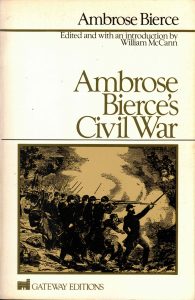
The final ten books leading up to #500 were not very good, on average. In fact, my average rating for those last ten was 3.0—which is worse than it sounds, given that I have only given a one-star rating a single time in all 500 books. (See the worst book I’ve ever read, mentioned above.) One book that did not drag down the average, however, was Ambrose Bierce’s Civil War, a collection of both non-fiction and stories written by the American master on the topic of the Civil War. The narratives in both sections have the resonance of truth, and some of his revelations about the realities of war are usually unspoken by those who have the actual experience of battle. Well worth your time.
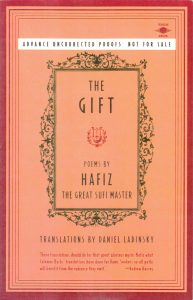
On the other hand, The Gift, Book #497 Read, purporting to be by the Sufi poet Hafiz, was both a disappointment and a travesty. As those who wish to delve into the story on the Interwebs can quickly discover, the ‘poems’ are not actually the work of Hafiz, but are verses not quite worthy of Rod McKuen or Richard Bach written (not translated) by one David Landinsky, who used the inspiration of the Persian poet to create these … ahem, verses (as he says) … and uses the name of the same poet to rack up sales of his own work (as he does not say). I’m now going deep into the Gertrude Bell translation of the actual Persian poems from the Divan of Hafiz (sometimes also Hafez), and can see no similarities between the latter and the platitudinous ‘Hang in there, baby’ lines from The Gift. Perhaps the German word was intended.
| # |
Read |
Author |
Title |
Genre |
| 491 |
8/15/20 |
Molly Ivins & Lou Dubose |
Shrub : The Short but Happy Political Life of George W. Bush |
Current Events |
| 492 |
8/16/20 |
Kate Carlisle |
The Lies That Bind |
Mystery |
| 493 |
8/17/20 |
Ambrose Bierce |
Ambrose Bierce’s Civil War |
Fiction |
|
8/17/20 |
Mike Baron |
Badger #2 [Capital] |
Comics |
|
8/17/20 |
Kamala Chandrakant |
Garuda: The Legend about the Vehicle of Lord Vishnu |
Comics |
| 494 |
8/24/20 |
David Baldacci |
The Guilty |
Mystery |
| 495 |
8/26/20 |
Ian Fleming |
Live And Let Die |
Mystery |
|
8/31/20 |
Keith Giffen, Andrew Cosby, John Rogers, Johanna Stokes, Joe Casey, & Kevin Church |
What Were They Thinking?! |
Comics |
| 496 |
9/1/20 |
Steven D. Levitt & Stephen J. Dubner |
When to Rob a Bank: And 131 More Warped Suggestions and Well-intended Rants |
Business |
| 497 |
9/1/20 |
Hafiz [actually David Landinsky] |
The Gift |
Poesy |
| 498 |
9/11/20 |
Barbara Hambly |
A Free Man of Color |
Mystery |
| 499 |
9/12/20 |
Noel Botham |
The Amazing Book of Useless Information: More Things You Didn’t Need to Know But Are About to Find Out |
Reference |
| 500 |
9/12/20 |
David Caplovitz |
The Poor Pay More |
Sociology |
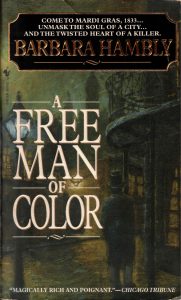
The last hundred books seem to have been predominated by Mysteries, and A Free Man Of Color was a surprisingly good one. The actual ratios of the various genres read will come out in my deeper analysis, which I hope to get to by the week after the election, assuming that the world does not end.
The lists of previously read books may be found by following the links:






















